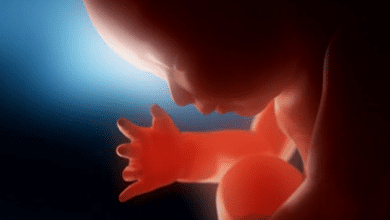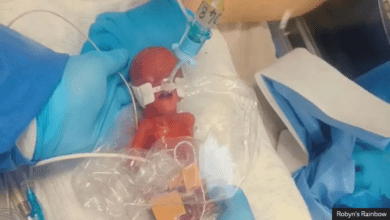Euthanasia doctor expresses regret for killing patients who weren’t dying

In a new interview, a Canadian doctor who performs euthanasia talks about how “meaningful” his work is — but also criticizes how easy it is to euthanize someone, even if they’re not sick or dying.
Madeline Li spoke Macleans about his experiences, which he described as both “meaningful” and “crazy.” He is the head of Medical Assistance in Dying (MAiD) at the University Health Network, and is said to have handled hundreds of cases. However, he was not on board with Canada’s MAiD program as it expanded to include the mentally ill.
“[M]Your opinion is that we should not give MAID for mental illnesses — and more than that, for chronic illnesses. In my opinion, death should not be a society’s solution to all kinds of suffering,” he said. “Society needs to agree on what types of suffering should be addressed with MAID. If someone is suffering primarily because they can’t afford housing rather than directly from a qualifying medical condition, do we think death is the appropriate solution for that? If your hardship is because you can’t afford your medication, or other structural vulnerabilities that are not directly related to a medical condition, is that a good reason for MAID?”
He also criticized the expansion of MAiD to allow people who are not dying to be eligible, even though he has personally participated in the deaths of such people since then:
I was recently on call and consulted to see a patient who had been admitted to the hospital for chronic pain. This patient has a complex medical and psychiatric history, significant trauma and multiple psychosocial vulnerabilities. They are alone. The patient was told that nothing more could be done for their pain, so they asked to apply for MAID.
I am not their MAID assessor, but I have been consulted as a psychiatrist for depression and suicidality. The patient told me that if they were not so alone, if they felt that someone cared about them, they would probably be able to tolerate their pain better. I expressed to this patient that I thought it would be a great loss to society if they died because they had contributed and had so much more to give. In other words, I expressed concern, which seems to mean everything this year.
But the person in question couldn’t afford the treatment Li recommended — psychedelic-assisted psychotherapy — even if they wanted it. He said they continued with their application for MAiD, which he said will almost certainly be approved.
Even worse for Li is when he actually kills a patient who is young and healthy – but has been diagnosed with cancer. Although the patient had a 65% chance of survival, the patient still chose MAiD, and refused any treatment. The death of that patient was approved, and even though Li did not agree, he killed the patient anyway.
“They saw it as an expression of their autonomy; I saw it as dystopian,” she said, adding, “I didn’t regret it at first. But when I started thinking deeply about how to better care for this process, I regretted ending this child’s life. I just parachuted in, I didn’t know this patient. And I didn’t take the time to have a meaningful discussion with them. I didn’t sit back and say, ‘Why don’t you just try this treatment? If it’s as bad as you think, MAID will be available.’ MAID was very new then, and we were all focused on patient autonomy. Current law leaves no room for clinical judgment, and no provision for meaningful dialogue. If this had happened, this person might be alive today.”
The number of people who have decided to commit suicide or euthanasia in Canada since it became legal is fast become famous, and although it has been temporarily delayed, the next step is the approval of MAiD for people with mental illness as their only diagnosis. Today, palliative care has suffered, as people with disabilities are forced into death rather than medical treatment.
Now, Li expressed concern that Canada’s MAiD program has gone too far.
“I think we’ve forgotten, over the last few years, that our roles as health care providers are to help patients make the best decisions for themselves,” he said. “I’m not trying to deny the patient autonomy – it’s their decision – but I don’t think I should defer to autonomy. It’s very nuanced, because again, I have to keep my personal value system out of it. The helping someone die, especially if they won’t, shouldn’t be a matter of checking things off a list.”







